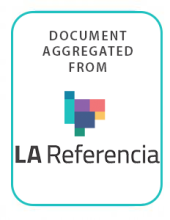Land Library
Bienvenue dans la bibliothèque du Land Portal. Explorez notre vaste collection de ressources en libre accès (plus de 74 000), comprenant des rapports, des articles scientifiques, des articles de recherche, des publications évaluées par des pairs, des documents juridiques, des vidéos et bien plus encore.
/ library resources
Showing items 37 through 45 of 1151.Communication dans le cadre du 5e Forum Mondial des Droits de l'Homme et de l’atelier du programme Lascaux "Le droit et l’accaparement des terres dans les pays du Sud", à Nantes le 23 mai 2013 In Papua New Guinea, 97 % of the grounds are subjected to the common law, and belong to the thousands of
Inequality in land ownership remains a major issue in many developing countries, such as Brazil, Colombia, and South Africa. Donors advocate a new model of "willing-buyer/willing-seller\", market-led land redistribution, but actual redistribution has fallen short of expectations.
Desde el reconocimiento de la existencia del desplazamiento forzado, el Estado ha ampliado y fortalecido la protección para los derechos de las víctimas. No obstante, las vulnerabilidades asociadas a la situación de desplazamiento se han agudizado.
RESUMEN El crecimiento urbano contemporáneo adopta patrones fragmentados y escasamente densos.
We propose a theory of urban land use with endogenous property rights that applies to cities in developing countries. Households compete for where to live in the city and choose the property rights they purchase from a land administration which collects fees in inequitable ways.
Like most other developing countries, China experiences huge migration outflows from rural areas. Their most striking characteristic is a high geographical and temporal mobility. Rural migrants keep going back and forth between origin villages and destination areas.
This study examined how planning mechanisms support affordable housing supply in Australia and overseas.
Mangroves are valuable socio-ecological ecosystems that provide vital goods and services to millions of people, including wood, a renewable natural capital, which is the primary source of energy and construction material for several coastal communities in developing countries.
Despite the local and global importance of forests, deforestation driven by various socio-economic and biophysical factors continues in many countries.


